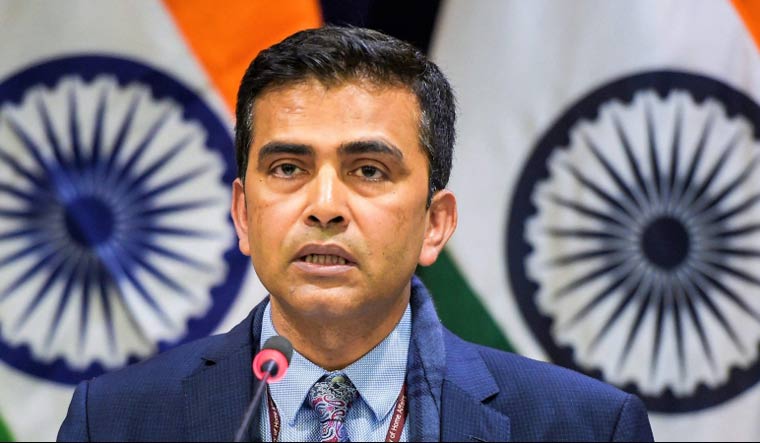The pleasant warmth of the 'Chennai connect' did not last long. On the last day of October, as India's internal map was redrawn to remove one state and create two union territories instead, a war of words erupted between the Chinese and Indian external affairs ministries.
China set the tempo when its foreign ministry official spokesperson Geng Shuang said the bifurcation of Jammu and Kashmir into union territories of Jammu, Kashmir and Ladakh was unlawful and void and that it would not change the fact that India has included into its administrative region some of China's territories. He accused India of challenging China's sovereignty.
Reacting to the statement, ministry of external affairs spokesperson Raveesh Kumar said, “We do not expect other countries, including China, to comment on the matters which are internal to India, just as India refrains from commenting on internal issues of other countries.'' This was a broad hint at India's studied silence at both the pro-democracy agitations in Hong Kong and the situation in Xinjiang, where China has been accused of human rights violations of minority Uyghur Muslims.
While pointing out that the union territories of Jammu and Kashmir and Ladakh are integral parts of India, and that this reorganisation was an internal matter, Kumar said India expected other countries to respect India's sovereignty and territorial integrity. He then hit out at the Chinese occupation “of a large tract of area in the union territories of Jammu and Kashmir and Ladakh.'' He said China had illegally acquired Indian territories from Pakistan-occupied Kashmir under the “so called China-Pakistan boundary agreement of 1963.”
He further said India and China have agreed to seek a fair, reasonable and mutually accepted solution on the boundary issue. “In the interim, the two sides have agreed to maintain peace and tranquility in the border area,'' he added.
China's reaction to the reorganisation of territory has not been consistent since the first announcement on August 5. Initially, it had only made a protestation of the Ladakh reorganisation, claiming some territory belonged to them. On Kashmir, it had said the issue was a legacy of history between the two countries and that they should resolved it between themselves through consultation and dialogue. China had asked both nations to exercise restraint and not unilaterally change the status quo. Later, after Pakistan Prime minister Imran Khan repeatedly contacted Beijing, the Chinese position got harsher, and it began speaking about resolving the Kashmir problem through a United Nations resolution.
This change of stance was despite External Affairs Minister S. Jaishankar explaining to Beijing how readjustment of territory was an internal matter and that it no way impacted outstanding border and territory talks with China. India has also steadfastly maintained that the Kashmir issue is a bilateral one between India and Pakistan.
Meanwhile, the MEA said it had facilitated the visit of a group of parliamentarians from Europe to Jammu and Kashmir since it was in line with the ministry's mandate to engage with members of other countries, across social spectrum, if it promoted diplomacy and national interest. He noted that such requests would be considered in the future too, though permissions would depend on the intent and content of the delegation, as well as the prevailing ground situation. According to him, the parliamentarians had expressed interest in understanding how terrorism impacted India, and that the visit turned out rather useful for their understanding.
also read
The visit happened at a time when five migrant workers were abducted and killed by suspected militants in south Kashmir. There were also strikes across Kashmir to protest the visit of the delegation. Most of the members of the delegation noted that while they did not get to meet a larger number of Kashmiris, they agreed that Article 370 and its abrogation was India's internal matter.



